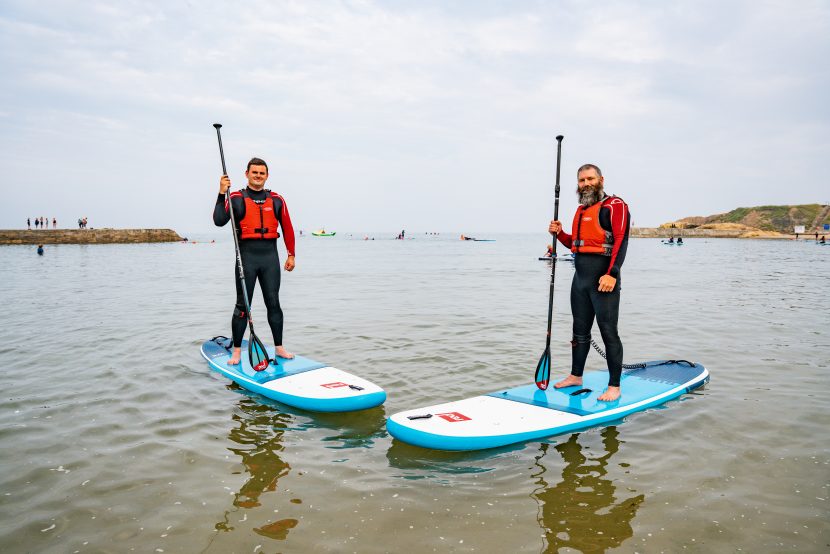A North East business is focussing its efforts this summer on educating the general public about the risks of cold water shock.
As people get ready to spend more time around open water, Simon Laing and Dave Calvert, Co-Owners of CBK Adventures – Kayak and SUP School, say that wearing a wetsuit can be a life saver.
“When unexpectedly entering water that has a temperature of 15°C or less, the body can go into immediate shock,” says Calvert.
“This can be the precursor to drowning. Wearing an appropriate wetsuit drastically reduces the chances of this happening and can save your life. All of our customers have to wear wetsuits when they are out on the water, and we’d strongly advise every recreational paddler to do the same.”
Cold water shock forces the blood vessels in the skin to close and raises a person’s heart rate, potentially resulting in a heart attack. The sudden cooling of the skin also causes an involuntary gasp for breath. This increases the probability of water entering the lungs. It only takes half a pint of sea water to enter the lungs for a fully grown man to start drowning.
The COVID-19 pandemic has seen a huge rise in the number of people taking up kayaking and paddle boarding, with Cullercoats Bay being a popular destination. As well, the recent spate of warm weather has led to hundreds of people flocking to the seaside village and enjoying time in or on the water.
CBK Adventures has been operating in the bay for more than 7 years and has first-hand experience of coming to people’s aid. Members of the team recently had to rescue someone who suffered cold water shock after jumping into the sea from the pier wearing a bikini. They also regularly encounter paddleboarders dressed in only shorts and a t-shirt, which increases the risk if they fall in.
Mr Laing adds: “Water-based activities have boomed over the past 18 months, with more people than ever experiencing the benefits of enjoying our region’s blue spaces. However, we want to ensure that people stay safe and are educated concerning the potential risks.”
To minimise the risk of cold-water shock, the advice is to:
- Wear a wetsuit that is of an appropriate thickness based on your activity and the time you plan to spend on the water
- Wear a flotation device as this greatly increases your chance of making it through any initial shock
If you enter the water unexpectedly:
- Don’t try to swim straight away. The initial effects of cold water can pass in less than a minute.
- Float on your back as you catch your breath
- Stay calm and either call for help or swim to safety
More information relating to cold water shock can be found on the RNLI’s website – www.rnli.org

